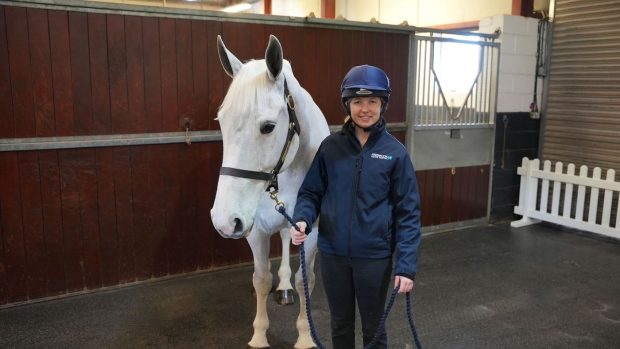A new blood test which can diagnose encysted small redworm burdens will launch in September.
The test, which will be available to horse owners via their vets, can diagnose all stages of the small redworm life cycle – including the encysted larval stage, which has previously been undetectable.
A spokesman for Austin Davis Biologics (ADB), who have launched the test and also produce the Equisal tapeworm saliva test, said: “Until now it has not been possible to test for encysted small redworm as faecal egg counts only detect the presence of egg-laying adult worms. This has meant that a routine winter treatment to target this life cycle phase has become the recommended practice.
“Small redworms are the most common gastrointestinal parasites to infect horses. When horses harbour a large burden of encysted larvae that emerge on mass from the intestinal wall clinical signs develop such as diarrhoea and colic, which can be fatal (larval cyathostominosis).”
Due to resistance in worms to the active ingredient fenbendazole, which has historically been used as a five-day course to target encysted small redworm, moxidectin is now the preferred choice of active ingredient to eliminate the encysted stage.
“To protect the effectiveness of moxidectin, targeted treatment programmes are required to ensure that the drug is only administered when it is really needed,” continued the spokesman. “The commercial availability of a diagnostic test to detect all intra-host stages of small redworm will be of great value to veterinarians enabling them to make a differential diagnosis as well as informed treatment decisions,” he said.
The test has been developed by Professor Jacqui Matthews’ group at the Moredun Research Institute, with the main funding being provided by the Horse Trust.
Article continued below…

New encysted small redworm test: owners asked for help with final step
It is hoped the new test will prove a significant step forward in targeted treatment and preventing resistance to wormers

Owners urged to take action over potentially fatal parasite

Subscribe to Horse & Hound this spring for great savings
Professor Mathews said: “It is great to see the commercialisation of this much-needed test to support sustainable worm control in horses. The test fills an important gap in our diagnostic toolbox and will enable horse owners to work with their veterinarians in targeting treatments against cyathostomin infections and hence help protect these important medicines for the future”
Dr Corrine Austin of ADB said research into a saliva-based test for small redworm is “ongoing” and is expected to be commercialised several years from now.
Vet practices can contact ADB at info@austindavis.co.uk to register interest in the diagnostic blood test service.
For all the latest news analysis, competition reports, interviews, features and much more, don’t miss Horse & Hound magazine, on sale every Thursday.




